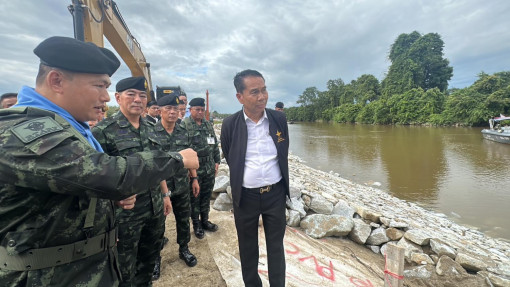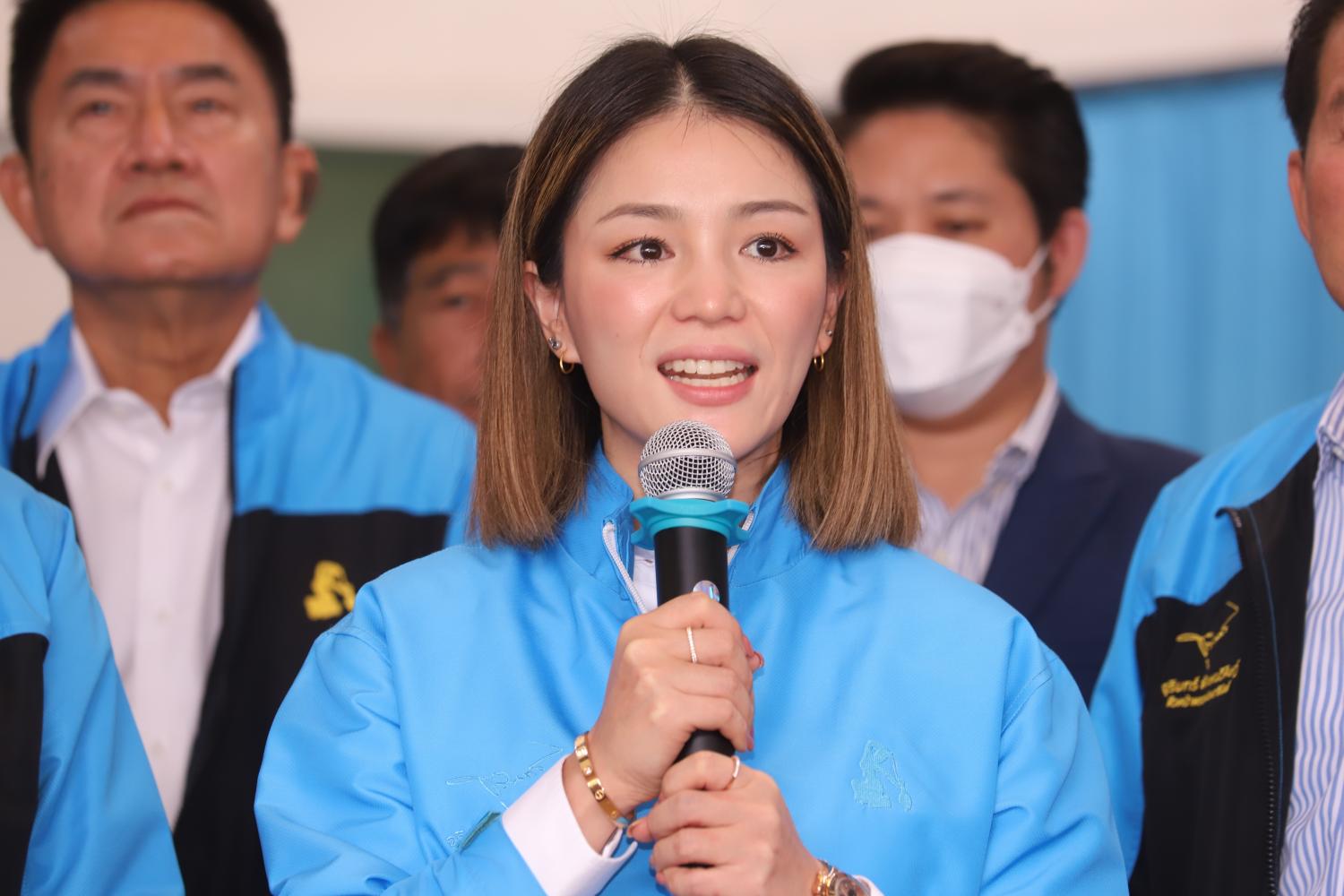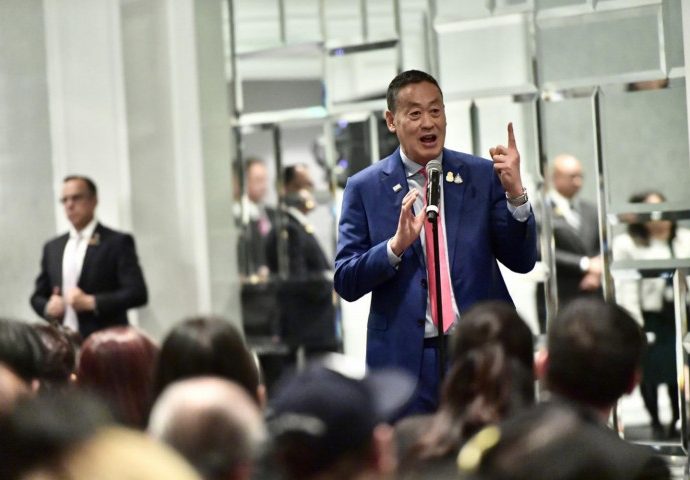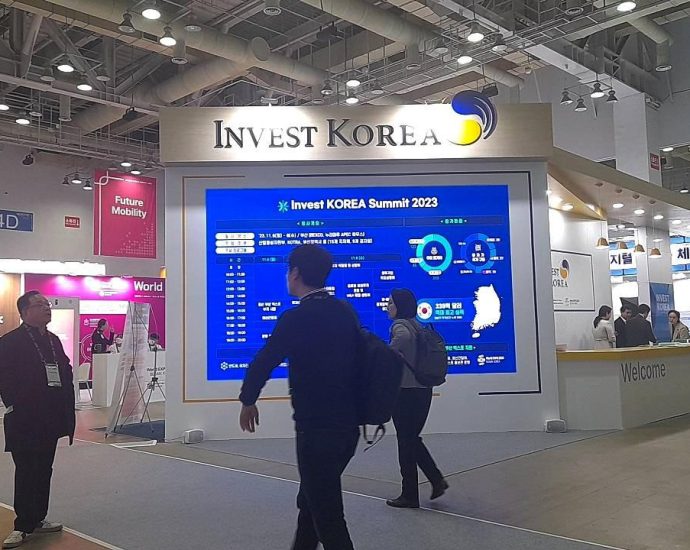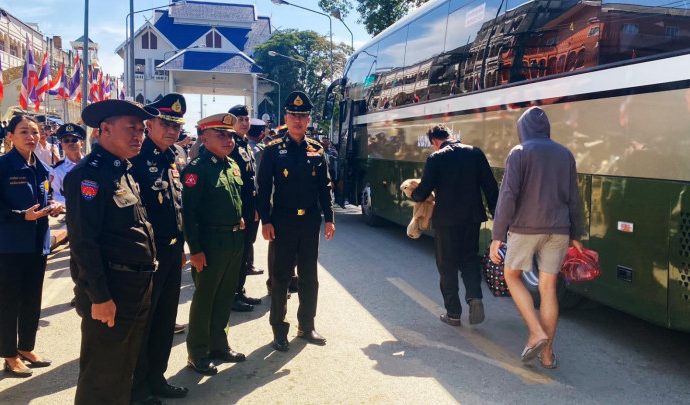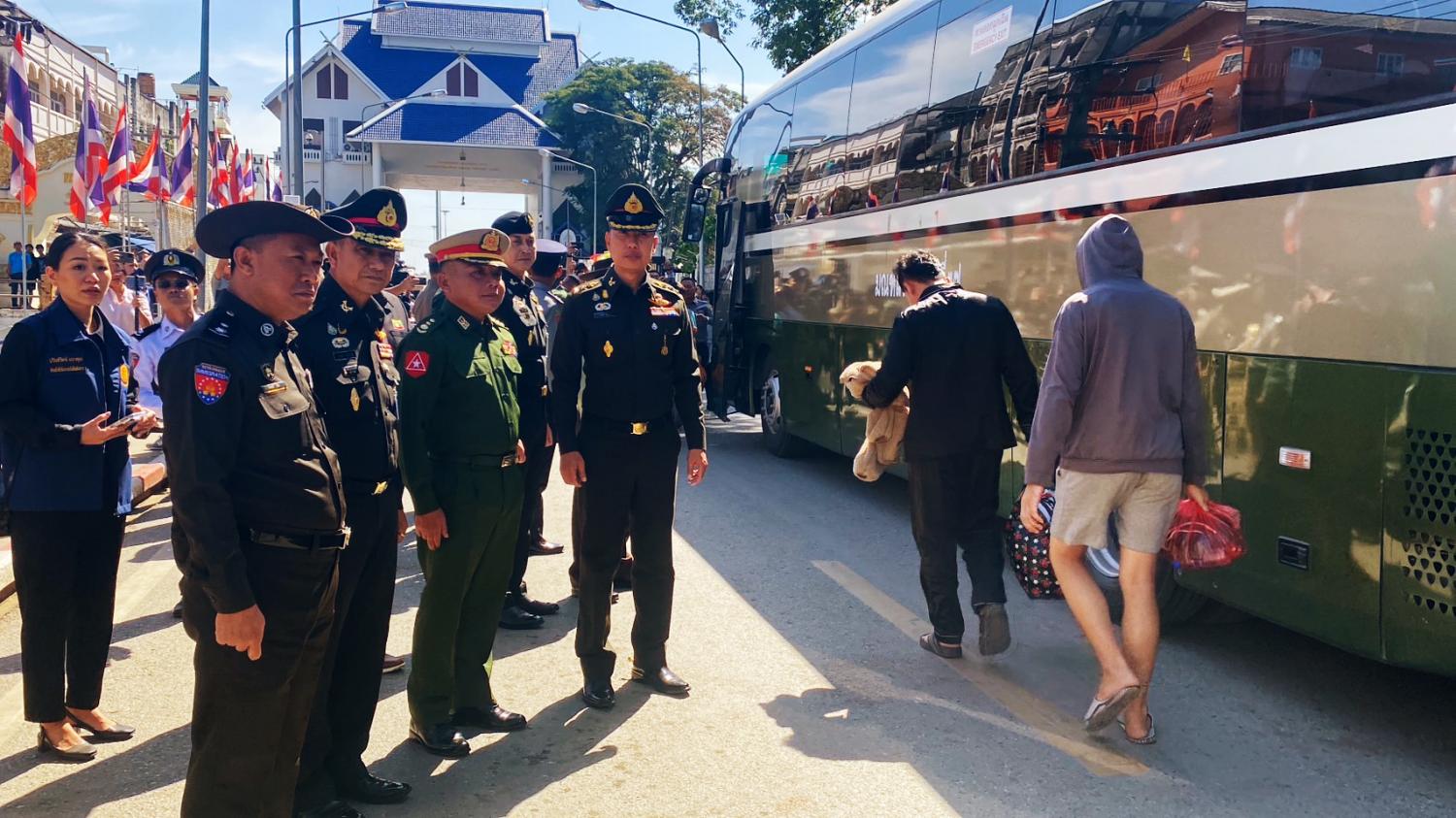Burst of activity in far South

The army is stepping up efforts to build an electronic fence in Narathiwat to boost security and surveillance along the Thai-Malaysian border as well as speeding up a riverbank protection dam project in the province.
Defence Minister Sutin Klungsang visited Narathiwat’s Tak Bai district on Monday to inspect the projects.
He was accompanied by Lt Gen Santi Sakuntanak, commander of the 4th Army, who also serves as the director of the Internal Security Operation Command (Isoc) Region 4.
Electronic fence
The fence project will be undertaken in phases, the first of which will take place in Narathiwat at a cost of about 600 million baht.
Under the project, some 357 CCTV cameras will be installed along the 106km border, including the 80km bank of the Golok River which flows past Waeng, Sungai Kolok, Sungai Padi and Tak Bai districts of Narathiwat. The river lies on the border between Thailand and Malaysia.
Work will start in Tak Bai first because some sections of the river flowing past the district are narrow, making it easy for illegal entry or the smuggling of drugs or contraband goods across the Thai-Malaysia border. The CCTV cameras will support border surveillance.
Lt Gen Santi told Mr Sutin the forward command had sought a budget of 600 million baht for the project, but it only received an allocation of 400 million baht.
Mr Sutin said he recognised the importance of the project and would make sure the rest is made available.
Mr Sutin said Thailand and Malaysia are good neighbours and if any problem occurs, the two countries are ready to hold talks.
Border security cameras
He also stressed the need for security officers along the border to maintain the CCTV cameras from vandalism. Local officials and villagers will also be asked to help look after them.
However, security officers also told Mr Sutin that some locals did not want CCTV cameras near their houses out of privacy concerns. However, authorities explained that the cameras are intended to ensure their safety.
Sources said separatists are likely to target the cameras.
Several types of cameras, such as facial recognition cameras, will be used with a real-time connection to security centres as well as the forward command.
Mr Sutin said the project will boost border security and help prevent the illegal smuggling of weapons, narcotics, migrant workers and contraband. “Local officials should also help look after these cameras because they come from taxpayer’s money,” he said.
Riverbank protection
Meanwhile, a project to construct riverbank protection dams along the Golok River in several districts of Narathiwat has been delayed because bad weather during the monsoon season in the South makes it hard for contractors to move material to the building sites.
In Sungai Kolok district, where the river runs a length of 28 kilometres along the border, only a 17km section of the riverbank protection structure was completed while work on the remaining section has not started yet.
In Waeng district with 46 kilometres of borderline, only a 27km section of the structure was completed while work on the rest has not started yet.
In Tak Bai district which runs a length of 21 kilometres along the border, only a 13.4km section of the structure was completed.
There were also problems stemming from roadworks along the riverbank on the Malaysian side of the border, sources said.
The roadworks involve dumping rocks on the shoreline and the river becomes narrow as a result, causing rushing streams that wear away the bank on the Thai side.
On July 3, Col Okarn Punyasaran, deputy chief of the Thai-Malaysian border coordination centre under the 4th Army, led a delegation to Malaysia’s Kelantan state and held talks to find a solution.
On July 17, Malaysia began removing the rocks from the banks of the Golok River.
Peace talks stalled
Meanwhile, peace talks between the Thai government and the Barisan Revolusi Nasional Melayu-Patani (BRN) separatist movement appear to have stalled pending the appointment of the new head of the government team negotiating peace in the deep South.
During his visit to Malaysia last month, Prime Minister Srettha Thavisin met his Malaysian counterpart Dato’ Seri Anwar Ibrahim for talks on issues including efforts to restore peace in the deep South. Malaysia has confirmed it is willing to continue to act as a facilitator.
However, the government has not yet appointed the new head negotiator to replace Gen Wallop Raksanoh, appointed by the previous government.
The BRN previously said it was ready to resume talks when the Thai government was formed after the May 14 election.
Another source said that Mr Srettha wanted a civilian to become the new chief negotiator rather than a military officer, but he could not find a suitable person.
Candidates for the role must be well-versed in military affairs, problems in the deep South as well as the structure of the separatist movement, the source said.
However, the PM stressed that he preferred a civilian because he wants the negotiation team to work independently of the 4th Army.
The new chief negotiator is expected to be named soon as the prime minister plans to visit the southern region for the first time later this month after assuming prime ministership.
Previously, the 4th Army would nominate a number of former senior military officers for the role of the chief negotiator.
They include Gen Pornsak Poonsawat, a former assistant army chief; Gen Kriengkrai Srirak, a former assistant army chief; and Rear Admiral Somkiat Phonprayoon, a former secretary-general of the Southern Border Provinces Administration Centre.

